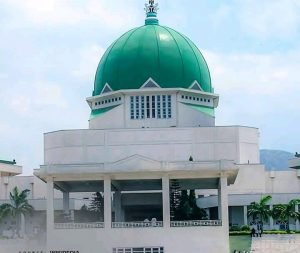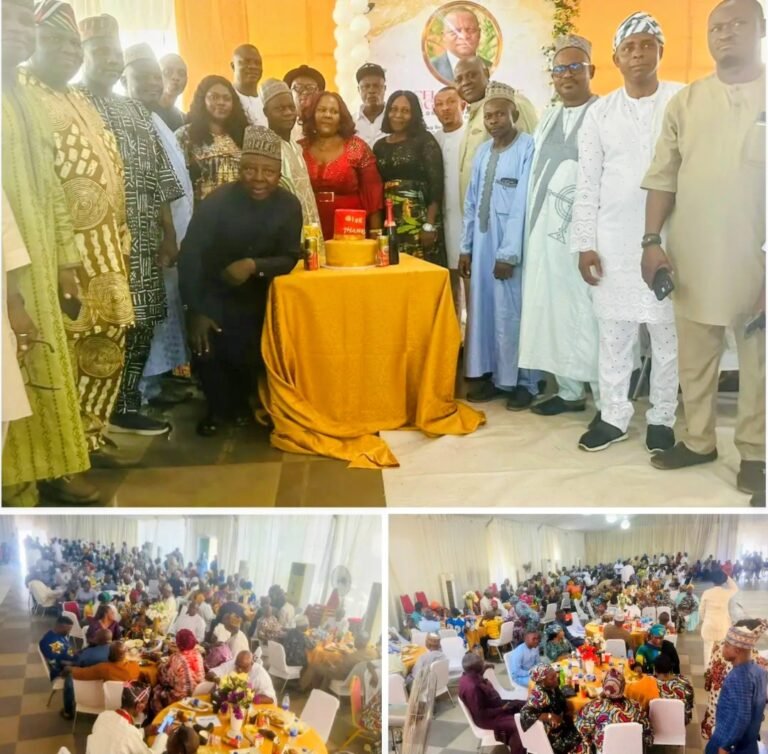
National Assembly ComplexTax reform bills and National Assembly’s quest for improved tax system
By Kingsley Okoye, News Agency of Nigeria (NAN)
Since the recent introduction of four tax reform bills by the executive arm, the National Assembly has taken a significant step toward contributing significantly to the latter’s quest to revolutionalise the country’s tax system.
Over the years, many tax experts, who have subjected Nigeria’s tax system to analysis, have been unanimous in their conclusion that it fraught with a myriad of challenges.
Some of the challenges, according to them, centre on issues of multiple taxation as well as tax evasion and avoidance, among others, all of which have, no doubt, inhibited optimal functioning of the country’s tax administration.
It is also believed that the tax system has become so complex, thus stifling growth and unable to generate the required revenue for development, as obtainable in other climes.
Tax experts and analysts are of the belief that the lack of optimal performance of the country’s tax regime is not unconnected to policy inconsistency, obsolete and ambiguous tax laws as well as weak and fragmented revenue administration.
It was, therefore, in his apparent move to drive the needed tax reforms that President Bola Tinubu presented four bills to the national assembly for consideration.
The bills are aimed at overhauling the complex and challenging tax regime, with the goal of promoting a more efficient and effective tax system that will enhance economic growth and development, improve revenue expansion and ultimately reduce the tax burden on the populace.
Needless to say that frantic efforts had been made by successive administrations to address the challenges inherent in the tax system, including amendment of the erstwhile tax laws and other fiscal instruments.
For instance, the Value Added Tax (VAT) was, in 2020, increased from five per cent to 7.5 per cent, while the Capital Gains Tax (CGT) Act was amended to remove the outright exemption on the sale of shares and the Tertiary Education Tax (TET) increased.
However, all these appeared not to have yielded the desired result, thus necessitating the recent introduction of the tax reform bills by the Federal Government.
Expectedly, the tax reform bills elicited national discourse, with critical stakeholders expressing divergent opinions.
While some stakeholders such as the Governors’ Forum, traditional institution, civil society organisations, politicians and other interest groups described the bills as ill-timed, given the current economic realities, others, however, said that the new tax regime was necessary to create a wider tax net in the overall interest of the country.
The Chairman of Presidential Fiscal Policy and Tax Reforms Committee, Mr Taiwo Oyedele, while defending the bills, said they were designed to address the current fiscal challenges and lay a sustainable foundation for Nigeria’s economic growth and development.
Oyedele said that the present state of the country’s economy had necessitated the comprehensive tax reforms to improve revenue collection, create a favourable business environment and address poverty.
According to him, the proposed reforms will also alleviate the existing tax burden on the low income earners and ensure that wealthier individuals and corporate organisations contribute fairly to government revenue.
Oyedele said that the reforms would equally simplify the tax structure, reduce the number of taxes, make compliance easier for businesses and individuals and increase the overall tax revenue.
He, however, stressed the need for building trust between government and citizens in order to ensure tax compliance, thus resulting in the planned establishment of a Tax Ombudsman.
Oyedele further stated that the tax reforms would engender a more equitable distribution, based on consumption in each state of the federation.
Also, the Chairman of Federal Inland Revenue Service (FIRS), Dr Zacch Adedeji, allayed the fears being expressed by a section of Nigerians on possible introduction of new taxes through the new tax regime.
The essence of the bills, he said, was to stimulate the economy, saying that President Bola Tinubu’s intention is not to tax poverty but prosperity, not to tax production but consumption.
“This is the beginning of Mr President’s commitment to fulfilling this so that we can have a solid foundation that will lead to the prosperity of this country,” Adedeji had said.
Deputy President of the Senate, Sen. Barau Jibrin, however, attributed the heat generated by the transmission of the bills to the national assembly on lack of proper understanding by the critics.
Barau pointed out that the bills were quickly passed for a second reading to allow the public to make comments and inputs.
“Nobody will do something that will harm his people. We must first have a grasp of the bills before they would be understood.
“That was why it was sent to the committee to review so that we can know the situation. We will also invite experts to go through it, but we have not gotten to that level now,” the senator said.
President of the Senate, Godswill Akpabio, also commended the president for the tax reform initiative, saying that it represented a monumental shift in the country’s fiscal landscape.
“It is disheartening that those who have not taken time to understand these bills are the loudest critics. I urge all Nigerians, especially those in public office, to engage with these vital reforms thoughtfully,” he said.
According to him, the initiative marks the first comprehensive tax reform since Nigeria’s independence, presenting a transformative opportunity for rejuvenating small and medium enterprises and enhancing the livelihoods of ordinary Nigerians.
“These reforms will not only improve Nigeria’s revenue profile but also create a more conducive and internationally competitive business environment, transforming our tax system to support sustainable development,’’ he had said.
Lending support to the tax reform bills, Speaker of the House of Representatives, Tajudeen Abbas, said Nigeria’s current low tax revenue remains a major constraint to national growth.
Abbas said that Nigeria’s tax-to-GDP ratio stood at 10.9 per cent in 2024, saying that it was among the lowest in Africa and was below the continental average of 15.6 per cent.
He said that addressing the challenges required urgent and comprehensive tax reforms to broaden the tax base, improve compliance, streamline administration and reduce reliance on borrowing.
Abbas said that the national assembly had engaged stakeholders to address the concerns raised on the bills in order to foster trust and cooperation.
As the national assembly continues to consult Nigerians to enhance better understanding of the need for the new tax regime, many tax experts believe that the country stands to reap the gains of a modernised tax system, with increased revenue, improved compliance and a more business-friendly environment.
They are also of the opinion that Nigeria will experience an unprecedented economic growth and development if the bills are allowed to scale through and become law.
According to them, the bills will address the challenges of a multi-layered taxation, consolidate the various legal frameworks relating to taxation and expand the country’s tax base.
It is also believed that the new tax reforms will promote generation of sustainable revenue streams for national development, address the complexities of the current tax system and enhance tax compliance.
Political watchers are, however, of the view that for the reforms to gain the confidence of vast majority of Nigerians, government must address issues related to wasteful and frivolous expenditure at all levels of government, stating that the revenues collected should be used expended on projects that would impact the citizens positively.
Efforts, they said, should also be made to address the concerns of all the interest groups so as to remove their doubts on the good intentions behind the bills.
As Nigerians await further legislative inputs on the bills after the ongoing nationwide consultations, concerned interest groups should be ready and prepared to make their inputs at the public hearing being proposed by the national assembly. This will surely do the country and its citizens more good. (NANFeatures)








